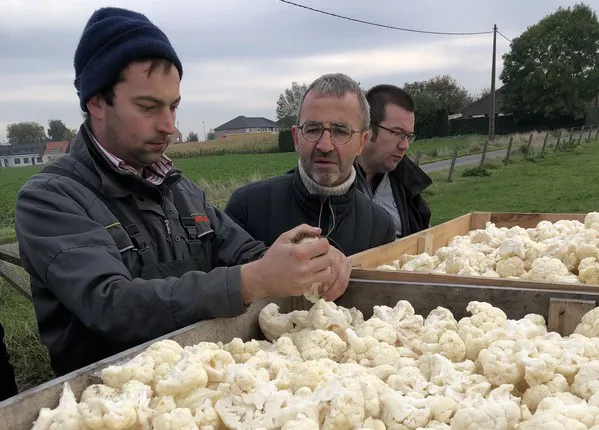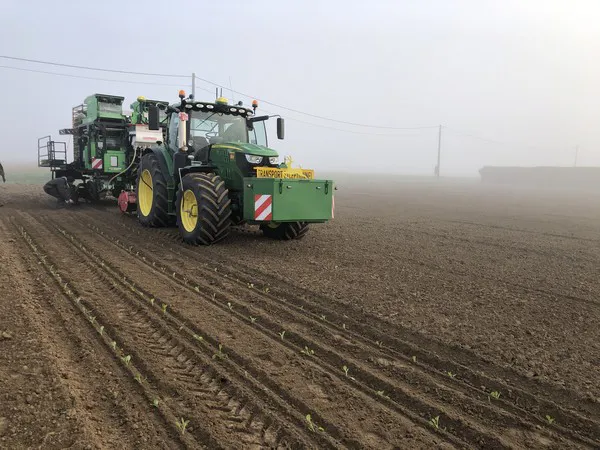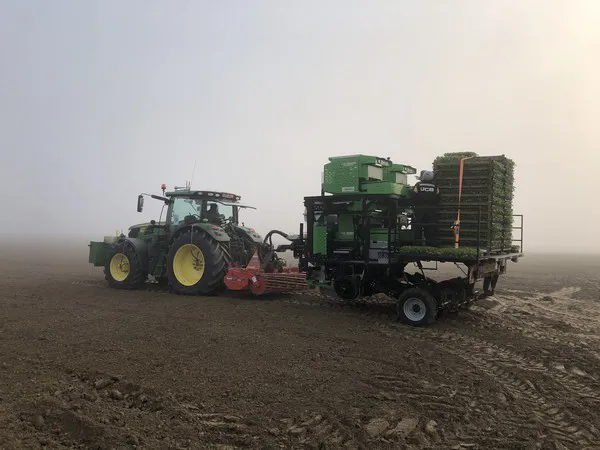Frozen fresh vegetables from Belgium's West Flanders are exported all over the world. Frozen fresh, indeed. These vegetables reach the production line within hours of being harvested. "Whatever happens, we go for superior products."

That's according to Luc De Waele of Ingro. He says it's still too early to comment about the coming season. However, there's one important issue that will affect cultivation again this year - the dry weather. "It seems bean and pea volumes will be lower this season. That's due to Belgium's lack of irrigation possibilities."
"These vegetables require a lot of water. The cultivation of these products is increasingly shifting to other areas, like northern France. There's more irrigation there. Cauliflower and Brussels sprouts are labor-intensive products. We expect an increase in these, our biggest products."
Ingro is a Belgian producer cooperative. It has 1,200 growers and a 500,000-ton vegetable yield. That makes it the country's largest processing industry cooperative. Ingro markets its members' vegetables to processing companies in Belgium and its surrounding countries. "Our mission is to create added value for our growers," says Luc.
From the field to processing in a flash
Labor-intensive cauliflower, Brussels sprouts, and leeks are cultivated in the West Flanders region of Belgium. No less than half of all the vegetables grown there are cauliflowers or Brussels sprouts. Other major products are leeks, carrots, beans, peas, and courgettes. "We have growers all over Belgium. We even have some in the Netherlands and France. They're all affiliated with our cooperative."

"Most of the vegetables go to frozen food producers. Many of those are also located in this region. That's a logistical advantage. It contributes to the end product's freshness and quality. The vegetables reach the production line within a few hours of being harvested. The time between harvest and processing is kept as short as possible," Luc continues.
Dry weather, low prices hinder farming
Belgium's lack of water is a significant challenge for growers. This has been a problem for years. It concerns the entire chain as well as the government. "We really need to find a feasible solution. I think it would make a difference if the authorities treated certain growers more flexibly. These are those who want to invest in water buffers. That's currently quite difficult with all the set conditions and requirements."

The low producer prices are equally regrettable. What Belgian growers eventually get for their vegetables is far below par, De Waele says. "They're always at the end of the queue while the costs keep rising. Not only because of the recurring heat and dry weather. That damages crops or those require more frequent irrigation," he explains.
"But also, for example, because the cost of crop protection products has been rising for years. The entire chain, including the industry and retail sectors, plays a role in this. We want to maintain the area's strong position as a vegetable processing region. Then something must be done. Better prices for the growers benefit the entire sector. That encourages farmers to get more out of their products and invest in the future."
Yet, West Flanders' growers remain motivated. They're known worldwide for their quality. "We're at the top and should be proud of that. It would be nice if we could stay there. A better appreciation for farmers would help. They go for quality at any cost and back their products 100%. That's very admirable," Luc concludes.
Facts
Ingro has 1,200 members, 800 of whom are active.
In 2020, their turnover was €103 million, representing about half a million tons of vegetables.
Cauliflower and cabbage make up around 50% of all its vegetables.
The processed vegetables go to more than 100 countries worldwide via buyers.
